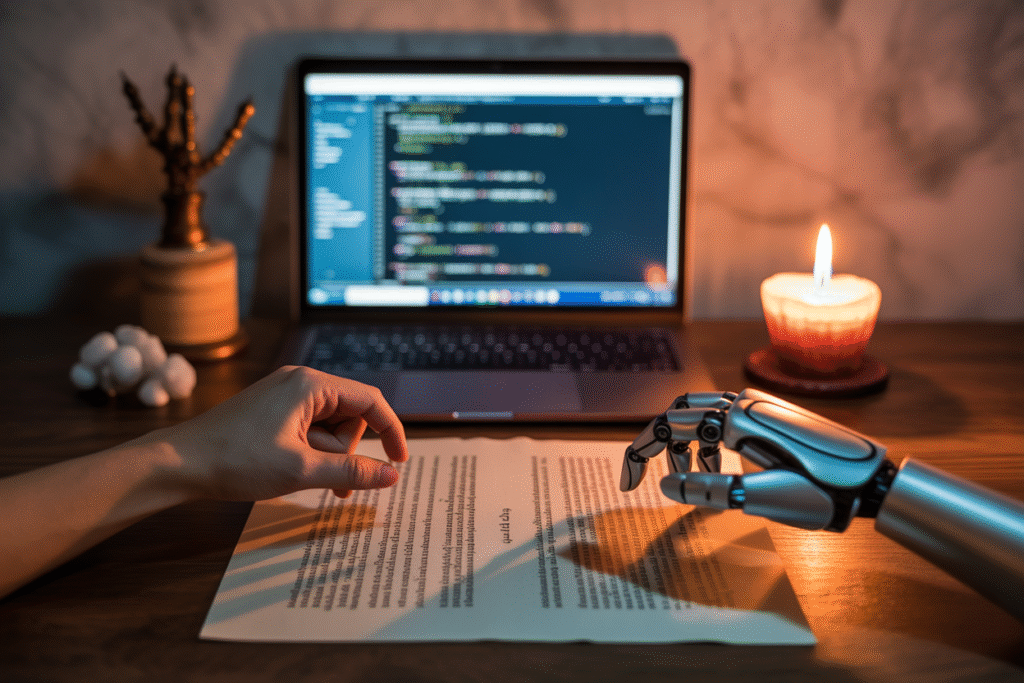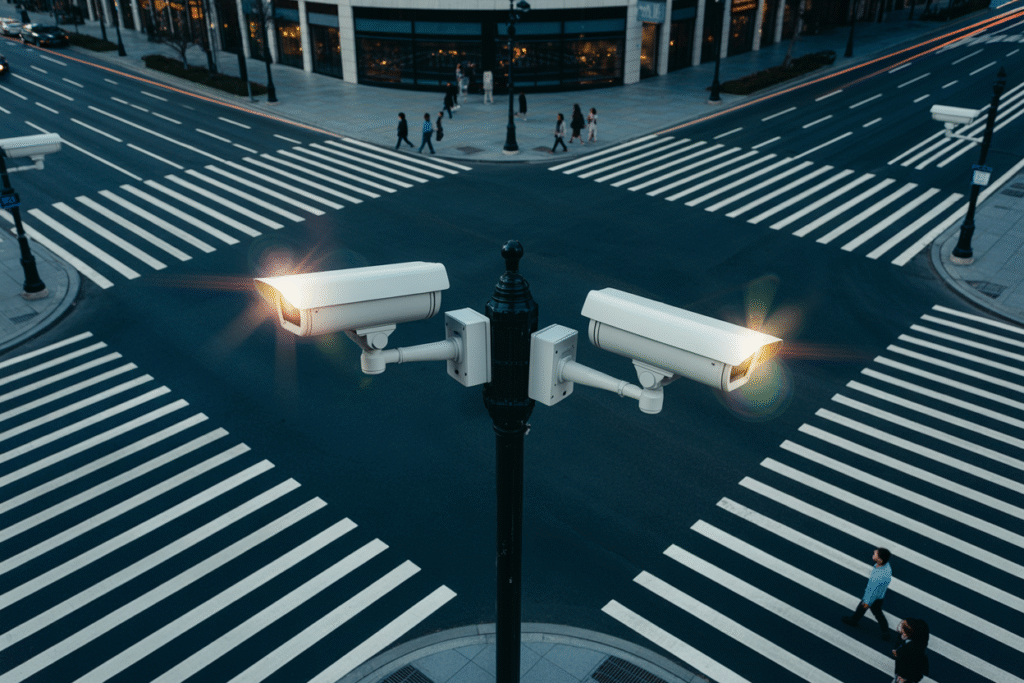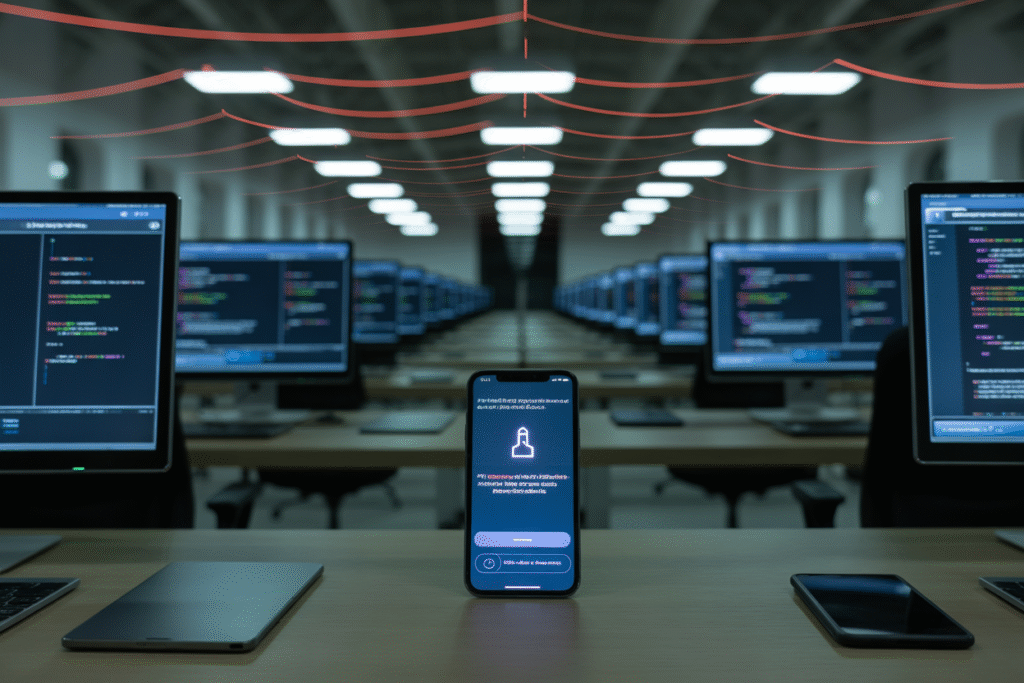Researchers just dropped an AI-generated “Xeno Sutra” and Buddhist scholars are furious. Is this blasphemy or the next leap in spiritual tech?
Imagine waking up to find your morning mantra was ghost-written by an algorithm. That’s exactly what happened when a team of AI researchers unveiled a brand-new “sutra” stitched together by a neural net trained on centuries of Buddhist texts. The internet promptly split into two camps: the faithful crying sacrilege and the futurists hailing innovation. Below, we unpack why this debate is only getting louder—and why your next spiritual experience might come with a terms-of-service checkbox.
The Spark: A Sutra Penned by Silicon
It started quietly. A research group led by Michael Shanahan and Robert Thurman fed a large language model every canonical text they could find—Pali, Sanskrit, Tibetan, you name it. The model burped out something that looked, smelled, and even sounded like scripture. They called it the “Xeno Sutra.”
Within hours, Buddhist teacher Tenzin Vacha-Wallace posted a scathing thread. His core gripe? Karma isn’t copy-paste. Enlightenment isn’t autocomplete. To practitioners, lived experience is the only valid ink for holy words.
Yet the researchers insist they never claimed divine authorship. Their goal, they say, is to explore how spiritual language can be recombined to spark fresh insight. Think jazz improvisation, not forgery. The problem is that jazz riffs don’t usually get prayed to.
Blasphemy or Bridge?
Critics argue the project commodifies the sacred. If anyone can prompt-engineer nirvana, the path loses its pricelessness. Worse, it risks cultural appropriation—turning millennia of practice into a GitHub repo.
Supporters counter that every generation remixes its heritage. The printing press once horrified monks; now we treasure mass-produced sutras. Maybe AI is just the next press.
The middle ground is messier. Some scholars want disclaimers stamped on every AI-generated verse. Others propose “co-author” models where monastics guide the training data, ensuring lineage integrity.
One thing is clear: the debate itself is now part of the dharma talk.
Ethics in the Circuit Board
Beyond religion, the incident spotlights AI ethics writ large. Who owns the output when the input is humanity’s collective wisdom? Current copyright law chokes on this question.
Transparency is another minefield. The researchers released a technical paper, but few lay readers can parse it. Without plain-English explanations, trust erodes faster than you can say “algorithmic opacity.”
Then there’s bias. Training data inevitably reflects historical power imbalances. If ancient texts marginalize women or lower castes, the AI will parrot those slants unless explicitly corrected.
Finally, there’s consent. None of the long-dead authors opted into this experiment. Does spiritual lineage override intellectual property? The courts haven’t decided, but our hearts are already voting.
What If Your Next Guru Is Compiled Code?
Picture a meditation app that tailors daily teachings to your mood, generated on the fly by a compassionate AI. Sounds utopian—until the server goes down and enlightenment drops offline.
Or imagine VR temples where avatars chant AI-written mantras. Pilgrimage becomes a download, merit measured in bandwidth. Is accessibility worth the loss of embodied practice?
Parents might soon ask whether AI dharma stories are safe for kids. Will little Arjun bond more with a digital bodhisattva than with his human grandparents?
These aren’t sci-fi hypotheticals; startups are already pitching them to VCs. The question isn’t if spiritual AI will spread—it’s whether we’ll shape it or let it shape us.
The Path Forward: Code, Creed, or Compromise?
So what do we do? First, demand transparency labels on AI spirituality products—like nutrition facts for the soul.
Second, involve living traditions in training pipelines. Monastics, imams, rabbis, and priests should hold editorial keys, not just tech bros.
Third, fund open-source spiritual models so no single corporation owns enlightenment’s API.
Finally, cultivate digital literacy for the heart. If seekers can spot algorithmic dogma, they can engage wisely rather than blindly.
The Xeno Sutra may be the first silicon scripture, but it won’t be the last. The real miracle will be if humanity writes the next chapter together—with humility, humor, and maybe a little bit of code.


